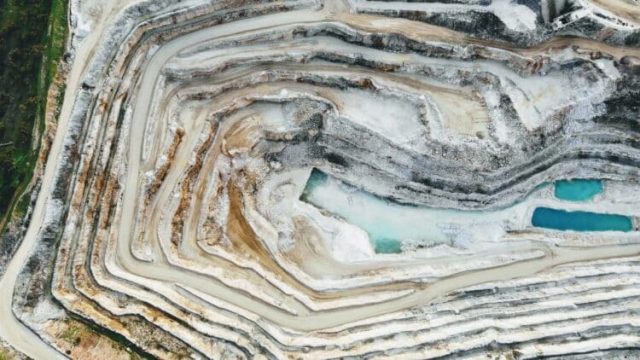[ad_1]
China is currently the biggest player in the lithium game, but maybe not for too much longer. A mine in a volcano in North America is so rich in mineral lithium deposits that it could kickstart an entire battery supply chain for the EV market. The area called Thacker Pass has received permission from the US Federal Government to begin operations and start bringing fresh lithium to the surface to service the electric vehicle market.
Volcano in Nevada holds enough lithium to power the EV revolution
Thacker Pass is in Humboldt County in Nevada, at the southern end of the McDermitt Caldera. The dormant volcanic feature looks rather unremarkable from the outside, but the mine is so rich in lithium deposits that it could balance out the market for the mineral, which is currently set in China’s favor. Amerca is now in the spotlight as a new supply option changes the face of the electric vehicle market.
China accounts for about 60% of the world’s lithium output, and most of the lithium in raw form comes from Australia, Africa, and South America’s lithium triangle, namely Chile, Argentina, and Bolivia. But if America becomes a major supplier, China will have to scramble to make up the gap in the country’s economy and rethink the future of battery and automobile production on the scale they had projected.

Thacker Pass Lithium Mine in the global green energy context
The Thacker Pass mine is being operated by Lithium Americas, which was recently awarded vast funding in the form of federal loans to get the project off the ground. The massive global focus on renewable energy means that governments worldwide, especially First World countries, are giving clean sources of energy the attention they deserve. Supplies of resources such as lithium, which is the essential component in lithium-ion batteries for electric vehicles, are now highly sought-after commodoties.
The United States, in particular, is wary of being reliant on China for raw materials, so the discovery of such rich lithium deposits on the continent will have gone a long way toward easing people’s concerns with the availability of lithium in their backyard. In fact, it’s been estimated that there’s enough lithium in Thacker Pass to last for centuries.
Lithium mine delayed until at least 2028
Lithium Americas’ original plan was to start producing lithium by 2026 at the latest. However, several factors have led to a delay in getting the Thacker Pass project off the ground:
- Nevada native tribes have instituted lawsuits over the use and ownership of the land and resources.
- Environmental groups have also brought forth legal challenges over the impact of the mining operations on the surrounding landscape.
- Numerous entities and stakeholders’ regulations had to be considered, and challenges had to be worked around.
It’s now projected that the maximum production of lithium will only be reached in 2028.
The future of the Thacker Pass Lithium Mine and its impact on renewable energy
The United States Department of Energy estimates that when peak production is reached, the project will produce up to 40,000 tons of lithium carbonate per year, enough for 800,000 vehicles, which will be used for lithium-ion batteries, predominantly for the electric vehicle industry. Around 1,800 employment opportunities will become available in the foundation phases and once operations are running optimally, 360 full-time positions will be filled.
The demand for lithium is expected to climb as more industries and consumers adopt cleaner forms of energy. It’s essential that supply is able to reach demand, and for Americans, it’s crucial to have a secure, domestic reserve to meet the demands of evolving technology. The construction of the Thacker Pass mine will need to be handled carefully to ensure the best possible outcomes for all stakeholders.
[ad_2]
Source link











